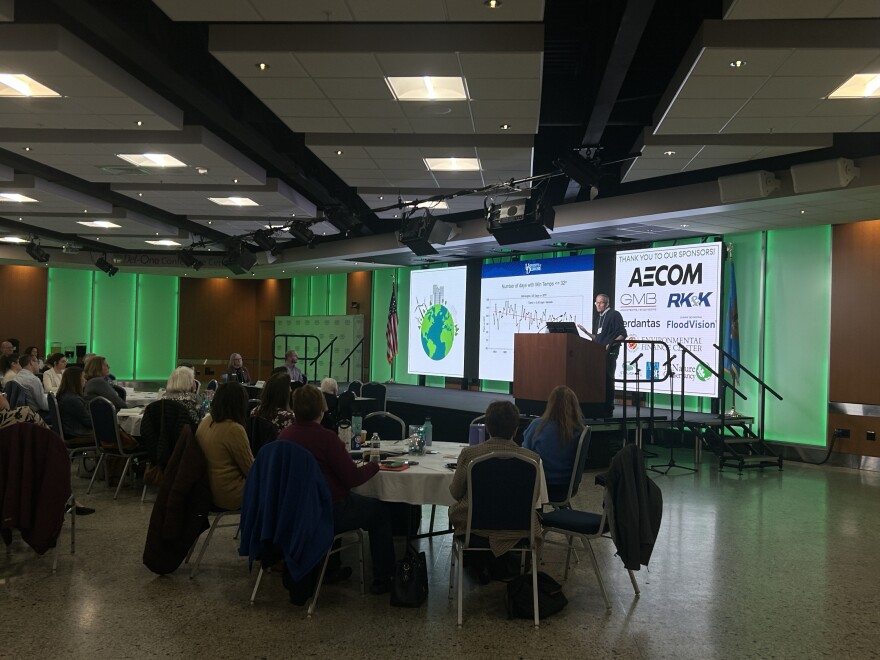The potential impact of federal funding and staffing cuts at the National Oceanic and Atmospheric Administration on scientific research concerns Delaware climate scientists.
The Trump administration has aggressively cut spending that promotes scientific research, including terminating Maine’s Sea Grant program.
The NOAA, which heads Sea Grants including Delaware’s, collects data and provides information on changing weather and climate patterns.
That information keeps the world turning across many industries, according to the Delaware Sea Grant’s coastal hazard specialist Danielle Swallow.
“They're keeping all the observations and data that are leveraged by the meteorology community, by the private sector, by the farming community, to understand how crops may be impacted, or aviation may be impacted, or shipping and so forth, by the weather and the climate,” Swallow said.
The discussion of these issues were part of Wednesday's annual Delaware Resilient and Sustainable Communities League Summit in Dover.
University of Delaware professor emeritus and former state climatologist Daniel Leathers, who presented at the summit, said data collection is necessary.
“If monitoring doesn't happen, then 30 years from now when a group like this reconvenes, we don't have the information to know what's happened in the past to better inform us as to what's going to happen in the future,” Leathers said. “Our planning is going to be very much impacted, and we're not going to be able to do it as well, if at all.”
Leathers described his findings at the summit, which included observations on temperature and precipitation trends over the last several decades. Leathers reported Delaware is getting warmer and wetter faster than the rest of the nation.
Delaware is also seeing a higher frequency of coastal storms, and the storms are also more regularly intense.
Leathers said that’s important to keep track of because Delaware is the nation’s lowest-lying state.
“As you cut things like the National Weather Service and NOAA, there's just less infrastructure there to be able to predict what's going to happen in Delaware in the short term, over a couple days, and also on the order of decades,” Leathers said.



